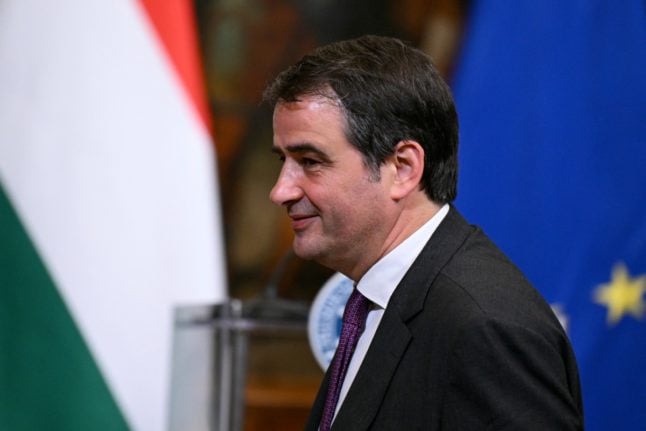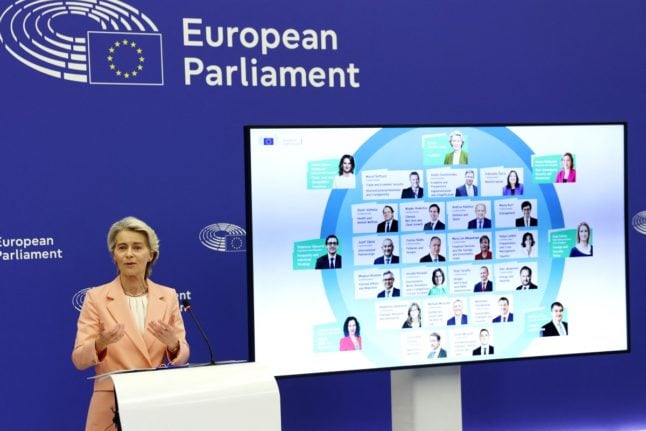Fitto, 55, will be in charge of “cohesion and reforms” and become one of von der Leyen’s key lieutenants in the European Union’s executive body, despite concerns from EU lawmakers on the left and in the centre.
“He will be responsible for the portfolio dealing with cohesion policy, regional development and cities,” von der Leyen told a press conference.
Writing on X, Meloni called the choice of Fitto, a member of her Brothers of Italy party, “an important recognition that confirms the newfound central role of our nation in the EU”.
“Italy is finally back as a protagonist in Europe,” she added.
Currently Italy’s European affairs minister, Fitto knows Brussels well and is widely regarded as one of the more moderate faces of Meloni’s government.
But as a member of her party, which once called for Rome to leave the eurozone, his potential appointment to such a powerful post had sparked alarm ahead of von der Leyen’s official announcement.
Centrist French MEP Valerie Hayer described it as “untenable” and Fitto is likely to face a stormy confirmation hearing before the European Parliament.
“Italy is a very important country and one of our founding members, and this has to reflect in the choice,” von der Leyen said of his nomination.
READ ALSO: EU chief to hand economy vice-president job to Italian PM Meloni’s party
Fitto was elected three times to the European Parliament before joining Meloni’s administration in 2022, when was charged with managing Italy’s share of the EU’s vast post-Covid recovery plan.



 Please whitelist us to continue reading.
Please whitelist us to continue reading.
Member comments